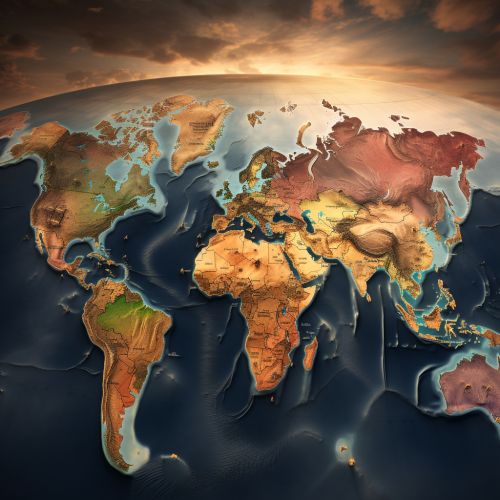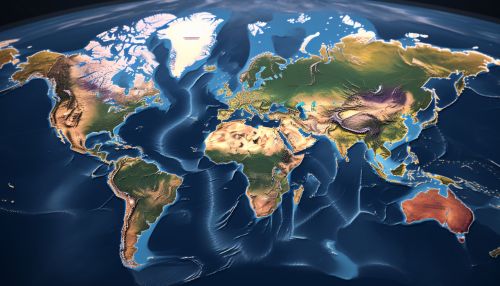Territory (political)
Definition and Concept
A territory in political terms refers to a designated area of land that is under the jurisdiction of a government or state. This land area can be a region, a country, a federal state, a province, or a municipality. The concept of territory is central to the study of political geography, international relations, and political science. It is the physical space where political power is exercised, and it is often defined by borders that separate it from other territories.
Historical Overview
The concept of political territory has evolved significantly over the centuries, from the empires of the ancient world to the nation-states of the modern era. In ancient times, territories were often defined by natural features such as rivers, mountains, and seas. With the advent of modern cartography and surveying techniques in the Enlightenment era, it became possible to define territories with greater precision. This led to the development of the modern system of nation-states, each with clearly defined borders.
Types of Political Territories
There are several types of political territories, each with its own characteristics and governance structures. These include:
Nation-States
A nation-state is a type of political territory that is characterized by a sovereign government and a defined territory. The concept of the nation-state emerged in Europe in the 17th century and has since become the dominant form of political organization worldwide.
Autonomous Regions
An autonomous region is a type of political territory that has a degree of self-governance. These regions are typically part of a larger nation-state but have been granted certain powers of self-government.
Colonies
A colony is a type of political territory that is controlled by a foreign state. Colonies were common during the era of European colonialism, but most have since gained independence.
Occupied Territories
An occupied territory is a type of political territory that is under the control of a foreign military force. These territories are often the subject of international disputes and conflicts.
Territorial Sovereignty
Territorial sovereignty is a key principle in international law. It refers to the right of a state to exercise exclusive control over its own territory. This includes the right to determine the laws and policies that apply within the territory, as well as the right to defend the territory against foreign aggression.
Territorial Disputes
Territorial disputes are disagreements over the ownership or control of land areas. These disputes can arise for a variety of reasons, including historical claims, ethnic or cultural ties, or strategic interests. Territorial disputes are often a source of international tension and can lead to armed conflict.
Impact of Globalization on Political Territories
The process of globalization has had a significant impact on political territories. On one hand, globalization has led to increased interdependence among states, which has blurred the lines of territorial sovereignty. On the other hand, it has also led to a resurgence of territoriality as states seek to assert control over their borders in the face of global challenges such as migration, terrorism, and climate change.
See Also


